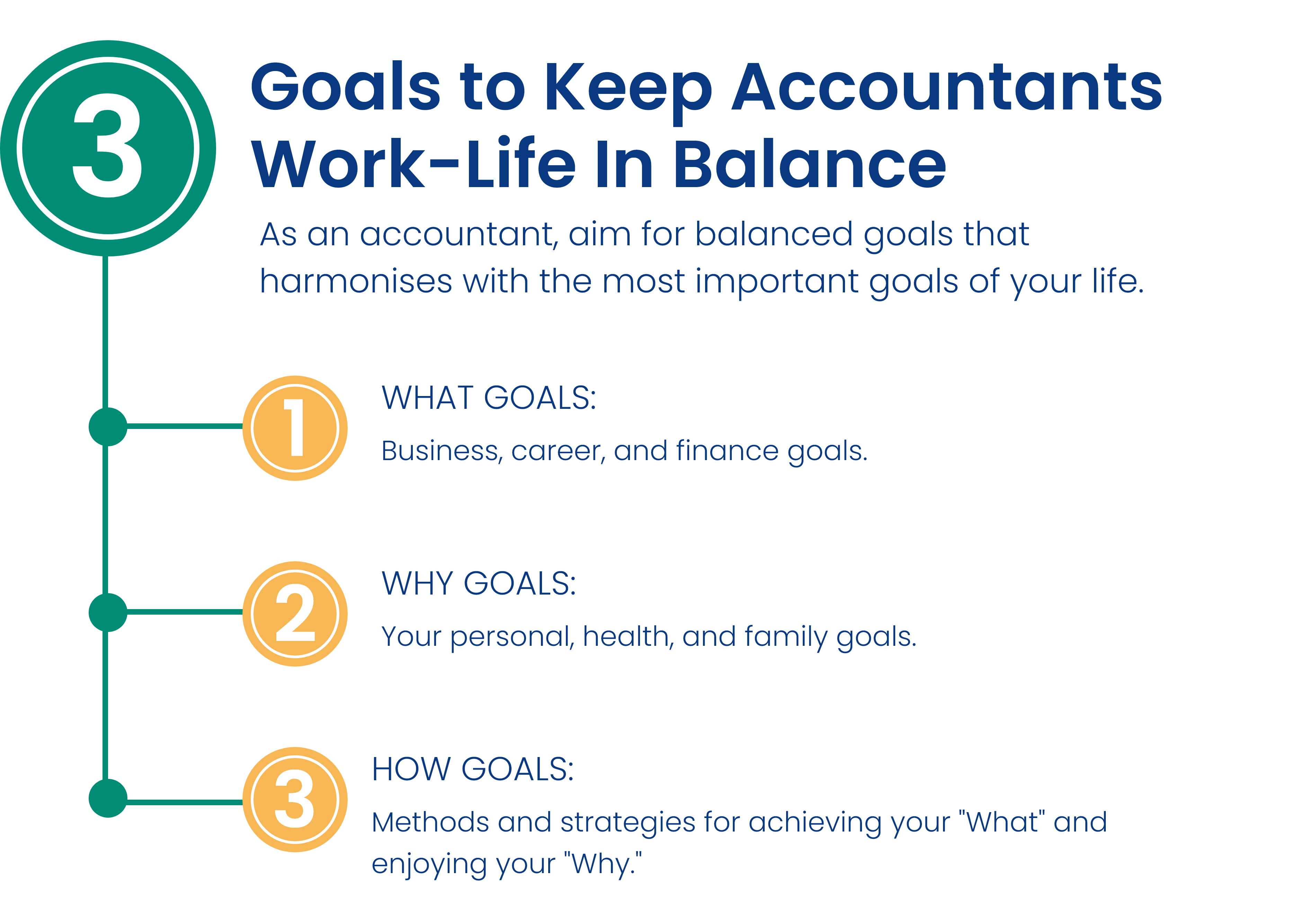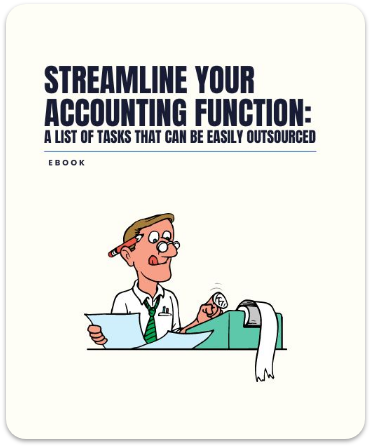How to achieve work-life balance in the accounting profession?
Introduction:
Achieving work-life balance in the accounting profession is akin to balancing a complex ledger, requiring meticulous attention and strategic planning. Accountants, known for their precision and dedication, often struggle to juggle demanding work schedules with personal commitments. However, it's not just about managing time; it's about enriching both aspects of life. This balance is crucial for maintaining mental health, ensuring job satisfaction, and fostering personal growth.
This blog will explore eight practical strategies to help accountants balance their professional responsibilities and personal life. These strategies are not mere suggestions but essential tools for thriving in a profession that is as rewarding as challenging. They range from setting boundaries and embracing self-care to leveraging technology and building supportive networks. Each strategy is a step towards creating a fulfilling career and a satisfying personal life.
The journey to work-life balance is unique for every accountant and is filled with opportunities for personalisation and adaptation. It's about making room for hobbies, family time, and relaxation amidst the rigors of financial analysis and deadlines. By implementing these strategies, accountants can transform their approach to work and life, leading to enhanced productivity, reduced stress, and a more profound sense of fulfillment.
Key takeaways
Work-life balance is crucial for accountants to maintain mental health, physical well-being, and job satisfaction.
A balanced life can enhance the accounting profession's productivity, creativity, and personal growth.
Hosting client’s events strengthens client relationships and adds a personal touch to professional interactions.
Delegating and outsourcing tasks can help manage workload effectively, reducing stress.
Importance of work-life balance for accountants
Maintaining a healthy work-life balance is paramount for several reasons. Here are a few of them:
Mental health and well-being: A balanced lifestyle is crucial in mitigating the risk of burnout and stress-related mental health issues. Often under high pressure, accountants need time to decompress and detach from their professional responsibilities.
Physical health: Regular breaks for physical activities and rest are essential. This rejuvenates the body and enhances mental alertness, which is essential for the detail-oriented nature of accounting work.
Enhanced productivity and creativity: A well-balanced life allows accountants to return to work with renewed focus and fresh perspectives, improving problem-solving skills and creativity in handling complex financial matters.
Strengthened personal relationships: Allocating time for family and friends helps build more robust, supportive personal relationships, vital for emotional support and overall happiness.
Long-term career growth: Achieving a work-life balance helps in sustaining enthusiasm and commitment to the profession, thereby aiding long-term career development and satisfaction.
Case Study: Maher, an Accountant in Melbourne
Maher, a 32-year-old accountant in a well-known Melbourne firm, embodies the typical challenges faced by professionals in his field.
The strain of long hours: Maher's workweek often extends to 60 hours, especially during the Australian tax season and financial year-end. This intense schedule leaves him with little time for his personal life, leading to exhaustion and the looming threat of burnout.
Juggling client needs: Maher faces the delicate task of balancing multiple client demands daily. He feels like he's walking a tightrope, constantly trying to satisfy each client's unique requirements while maintaining accuracy and compliance. This high-wire act makes it hard for him to disconnect from work and enjoy his time.
Responsibility and stress: A significant part of Maher's job involves managing critical financial information for his clients. Any error on his part could have serious repercussions for their businesses, adding a heavy weight of responsibility to his shoulders.
Keeping up with changes: The accounting field is constantly changing, with new standards, tax laws, and technologies. Maher spends his already limited free time studying these updates to stay ahead. While essential, this commitment to continuous learning further eats into his time.
Peak period pressure: Maher's workload becomes even more demanding during peak periods like tax season. The long hours and intense focus required during these times often mean sacrificing his hobbies and time with family and friends.
Proactive steps for change: Feeling the strain of his demanding schedule, Maher decides to address the issue. He approaches his manager with a proposal for more flexible working arrangements, such as the option to work from home or adjust his working hours. His manager, recognising the importance of staff well-being and the benefits of a balanced work environment, takes Maher's proposal seriously and starts looking into making these changes feasible for the whole team.
8 key strategies for achieving work-life balance in the accounting profession
Create a schedule:
Creating a schedule is a powerful tool for achieving work-life balance, especially during the busy tax season. Examining your workload in advance allows you to record deadlines and allocate time effectively for each task. This proactive approach allows you to prioritise tasks, distinguishing between those that can be extended and those that cannot.
Establishing a routine for handling tasks in a specific order, including setting aside time for monotonous tasks, helps manage your day more efficiently. Prioritising tasks based on their importance ensures that you spend your time wisely. Regularly assessing your achievements can lead to more realistic targets and better planning. This method improves your work-life balance and enhances your overall productivity and job satisfaction.
Prioritise self-care:
Prioritising self-care is essential for accountants. Incorporating exercise, meditation, and hobbies into daily routines can significantly enhance physical and mental well-being. For accountants, who often face high stress levels due to tight deadlines and complex financial tasks, self-care is a crucial buffer, helping them maintain resilience and balance.
Engaging in regular physical activity not only improves physical health but also boosts mental clarity and stress management. Meditation and mindfulness practices can help reduce anxiety and improve focus, which is vital in a profession that demands precision and attention to detail. Hobbies and leisure activities provide a necessary break from work, allowing the mind to relax and rejuvenate. By prioritising self-care, accountants can better manage work-related stress, improving overall performance and job satisfaction.
Set clear boundaries:
Setting clear boundaries between work and personal life is a critical strategy for accountants to achieve a healthy work-life balance. In a profession known for its demanding hours, especially during peak seasons like tax time, it's easy for the lines between office and home life to blur. Accountants should establish and adhere to specific work hours, ensuring they do not routinely take work home or let work commitments encroach on their time.
Communicating these boundaries to colleagues, clients, and family members is key. This might involve setting expectations about response times to emails or calls outside work hours and being firm about not accepting additional tasks that could compromise personal time. Learning to say 'no' is vital in this process, as it helps prevent over-commitment and burnout. By maintaining these boundaries, accountants can dedicate time to personal interests, family, and relaxation, which is essential for mental and physical well-being.
Organisation and technology:
Organisation and technology are pivotal in managing client information efficiently and reducing stress. Accountants can streamline their data management processes by leveraging cloud-based collaboration, data collection, and storage solutions. This approach allows all client information to be organised and stored in a central location, accessible with just a click. Such technological integration not only simplifies the retrieval of necessary documents but also significantly reduces the time spent searching for specific data points.
Furthermore, using tools like Content Snare can facilitate the collection of information from clients, minimising the back-and-forth communication often associated with document gathering. By adopting these tech-driven solutions, accounting firms can enhance their operational efficiency, reduce administrative burdens, and ultimately foster a more balanced and less stressful work environment.

Continuous skills and development:
Continuous learning and skill development are crucial for accountants to maintain effectiveness and efficiency. This commitment to ongoing education ensures that professionals stay updated with the latest industry trends, technologies, and regulatory changes. Enhancing skills and knowledge improves the ability to handle complex accounting tasks and boosts confidence and competence.
Investing in professional development allows accountants to adapt to new challenges, offer more value to clients, and find innovative solutions. Moreover, this continuous skill enhancement is key to career advancement and personal growth, contributing significantly to job satisfaction and a balanced work-life. Emphasising continuous learning is a strategic approach that empowers accountants to excel while effectively managing their personal and professional responsibilities.
Foster a supportive network:
Fostering a supportive network is crucial for accountants, who often face unique professional challenges. Building a network of colleagues, mentors, and friends who understand the intricacies of accounting can provide invaluable support. This network serves as a sounding board for sharing experiences, seeking advice, and gaining different perspectives, especially during stressful or challenging times.
Having a supportive network allows accountants to discuss and navigate the complexities of their work, from technical issues to ethical dilemmas. It also provides emotional support, helping to alleviate stress and prevent burnout. Colleagues can offer practical solutions based on their experiences, while mentors can provide guidance and insight, helping to shape career paths and decision-making processes.
Host client events:
Hosting client events is an effective strategy for strengthening client relationships in accounting. These events create a relaxed and informal setting beyond the confines of traditional business meetings. By organising regular seminars, social gatherings, or interactive workshops, accountants can engage with their clients in a more personal and approachable manner. This relaxed atmosphere allows for open communication, fostering deeper trust and understanding between the firm and its clients.
Such events also provide an excellent networking opportunity to gain insights into clients' evolving needs and showcase the firm's commitment to supportive and collaborative client relationships. Beyond their professional benefits, these events contribute to a more enjoyable and balanced work environment, enhancing job satisfaction and overall well-being for the accounting professionals involved.
Delegate and outsource:
A significant challenge is to achieve a harmonious work-life balance, especially during peak seasons like tax periods. A practical and effective strategy to address this is through delegation and outsourcing. By identifying less critical or highly time-consuming tasks, accountants can shift these responsibilities to external partners or junior staff. For instance, outsourcing tax preparation or certain accounting functions to specialised service providers can substantially lighten the workload.
This approach frees up valuable time for accountants to focus on more complex and strategic aspects of their work and enhances overall efficiency and service quality. Outsourcing to reliable partners ensures that experts handle tasks, improving outcomes and client satisfaction. Moreover, it allows accounting professionals to manage their time more effectively, reducing stress and preventing burnout.
Wrap up!
When it comes to being an accountant, achieving work-life balance can be tricky. We've discussed the importance of work-life balance for accountants and explored 8 key strategies to help them achieve it. But why is this topic so crucial? As we all know, the accounting profession is demanding, with extended hours, tight deadlines, and high pressure to manage.
This kind of workload can easily lead to burnout and negatively impact one's life. That's why finding a healthy balance between work and personal life is essential for maintaining our mental and physical well-being and becoming more efficient and productive in our professional lives.
At AccountGlobal, we understand the struggles that come with being an accountant. Our mission is to support accounting firms in achieving their goals by offering expert outsourced accounting services. With our Virtual Accountants and Project-Based Model, we provide flexible, cost-effective solutions tailored to your firm's unique needs.
Our offshore-based dedicated accountants and bookkeepers are well-qualified and experienced, ensuring seamless integration with your in-house team. Whether you need ongoing support or assistance with specific projects, our services are designed to reduce your workload and stress levels, allowing you to focus on big-picture objectives and achieve a better work-life balance. For more information on how we can assist your firm or to discuss your specific needs, please don't hesitate to contact us.







